12, October 2022
Southern Cameroons Crisis: The killing is going on unnoticed and unreported! 0
It is now seven years since the conflict pitting Cameroon’s English-speaking minority and the country’s Francophone-dominated government hit the global stage and despite some behind-the-scenes efforts to reach a negotiated settlement, things have continued to deteriorate though the government continues to give the impression that things are gradually returning to normal.
In some towns like Bamenda, Kumba, Limbe, Buea, Kumbo, etc, there is a semblance of peace as soldiers and separatist fighters are no longer clashing as much as they used to when the conflict just started. However, this does not imply that peace has returned to the towns and life is going on as it was before the fighting which has already claimed more than seven thousand lives.
Most of the fighting has simply migrated to rural areas where separatist fighters are hiding in the bushes and are practicing hit-and-run tactics which are really delivering some unexpected, but spectacular results.
Many of the country’s army soldiers are still being killed and this unfortunate news does not get reported. The pseudo-calm gives the soldiers the impression that things are returning to normal, and this is causing them to let down their guard, making it easy for separatist fighters to score some victories, albeit unnecessary as there is no joy in taking somebody else’s life.
Cameroonians do not need to kill each other to find solutions to their problems. If the government had adopted a different approach to the crisis, the peace Cameroon was noted for, would not have been tampered with. The government still holds that old ways can produce spectacular results, but times have changed, and the dynamics are totally different.
The Internet has reshaped the way people think and the myth that government forces cannot be attacked has been broken. Successes by separatist fighters only go a long way in underscoring this unfortunate fact. Besides, with the Internet, Cameroonians can get jobs in other parts of the world without seeking to join the country’s civil service which the government thought was a “holy grail” to many of its citizens. Globalization, driven by the Internet, has changed the Cameroonian mindset and the civil service with its derisory salaries is no longer attractive.
Also, the country’s English-speaking minority which has known marginalization and injustice for more than half a century now has a massive Diaspora which is a key ingredient in the country’s socio-economic and political development. This Diaspora has the resources to help move forward the country’s development agenda if the government decides to carry out reforms and turn to new ways which have enabled other countries on the continent to make giant strides forwards towards economic development.
However, if the government decides to keep its laws and its questionable methods of governance which are indeed outdated, the Diaspora will continue to drag its feet when it comes to helping development efforts in the country. It is the government’s unrealistic approach to the crisis which pushed the Diaspora into supporting the armed struggle. Nobody in his right mind will stand by watching how his family being murdered.
Every human being has survival instincts and the Diaspora simply felt it necessary to jump into the struggle and provide much-needed support to those who felt they could roll back a threatening military.
The Yaoundé government has always thought that bullying will work in any case and that was why it rolled out its arsenal of deadly military equipment against a people who just wanted justice and peace in a country which is rightfully theirs.
Today, even if the separatists fail in their bid to split the country, their message has been heard far and wide. They have proven that killing is no man’s preserve and that being in military fatigue is no license to kill other people.
Besides, a military uniform is no vaccine against death. Thousands of Cameroon’s army soldiers have died due to the unnecessary war, and thousands have been maimed and scarred for life. These are unfortunate situations which could have been avoided if the government had prioritized peace over war.
Though there is a semblance of peace in the country’s two English-speaking regions, it should not be assumed that a peace conference is not necessary. Sweeping the issue under the carpet does not imply that it has been addressed. The Southern Cameroons crisis is like an inactive volcano. It is, indeed, like Mount Etna in Italy which erupts from time to time, claiming innocent lives due to bad politics, corruption and greed.
While people in the towns and cities of Southern Cameroons are enjoying some relative calm which should not be misconstrued for peace, those in villages are still in the grip of fear where separatist fighters call the shots.
Many children in rural parts of the two regions are still not in school. Their collective and individual futures are being compromised and these children will be the next warriors and criminals who will vent their anger on the government and the separatist fighters who are robbing them of their future.
For school closures in rural parts of Southern Cameroons, separatist fighters are totally to blame. Their reckless and irresponsible behavior is jeopardizing the lives and destinies of their own children and brothers. They need a rethink of their strategy if they must remain relevant. No country has ever developed when its citizens lack the brainpower to face the challenges of their time.
The recklessness demonstrated by separatist fighters over the last two years has transformed them into millstones around the necks of the same civilian population they claim to protect. They kidnap innocent people and ask for a king’s ransom. To them, they are in the business of fighting to make money and not to liberate their land.
The last time Cameroon Concord News Group checked, the five priests kidnapped about a month in Nchang, a small town some five kilometers from Mamfe town, are still in captivity.
The church, in which the priests were delivering solace to their desperate faithful, was set ablaze as the fighters took their captives into a jungle which provides them some safety from military attacks.
These ‘freedom fighters’ are still insisting on having a ransom from the Catholic Church even when Archbishop Nkea has told them, loud and clear, that the Church is not in the business of paying ransoms.
Crimes committed by these separatist fighters are getting more shocking every day. Some have even turned to armed robbery. They have morphed from freedom fighters to bank robbers, and it is held by many that that their masters, some of whom are living in the United States, are supplying them with the latest bank robbery tactics which are netting them huge amounts of money.
A few days ago, some separatist fighters stormed a bank in Mamfe, killing two soldiers and making away with a huge wad of cash. Freedom fighters have become armed robbers. Instead of fighting army soldiers, they are now fighting banks which are creating jobs for their own people.
They have the weapon of power, but they have decided to use it to feather their own nests if the money from the Diaspora is no longer flowing. It is obvious that they will be staging more attacks on those financial institutions as they become more brazen.
If collecting ransoms was the only blemish on their character, one would cut them some slack, but separatist fighters have distinguished themselves through their summary and arbitrary execution of people they suspect of foul-play or misconduct. Their judgment is always expedited, and they have made death sentences to sound like a joke. Freedom fighters are now those who are robbing their people of their freedom. The madness in the struggle is now on display for all to see. These are the same people who accused the Biya regime of human rights abuses and corruption. The world is full of ironies, but this one is unfathomable.
Many people have been summarily executed by separatist fighters on mere suspicion that they are collaborating with the Yaoundé government. They hardly produce any evidence, and, in many cases, their victims get tortured during questioning.
Their victims are sometimes compelled to acknowledge crimes they have not committed in the hope that they would be freed. Unfortunately, their acknowledgement only sends them to an early grave, causing many people to question the idea of even challenging the Yaoundé government. The alternative, indeed, the solution is proving to be more painful than the initial problem. These deaths are going unnoticed.
Due to their ruthlessness, some people in the international community have even tagged separatist fighters as “fighters without a cause”. Some of the fighters hold that it is their right to knock up any young girl and they are doing a good job at that as many teenage girls are not struggling with unwanted pregnancies or children they cannot care for. Fighting for freedom comes with huge perks, at least in Southern Cameroons and, in Southern Cameroons, free sex is one of those glorified perks.
While there is a lull in the fighting, the government and the international community must not continue to be silent. Soldiers like separatist fighters are killing many people in rural areas. Most of the fighting has been exported to the rural areas and without any means to report actual numbers or who is to blame after such atrocities, many lives will be cut short, and the blood will continue to flow unnoticed and unreported.
By Dr. Joachim Arrey in Toronto, Canada
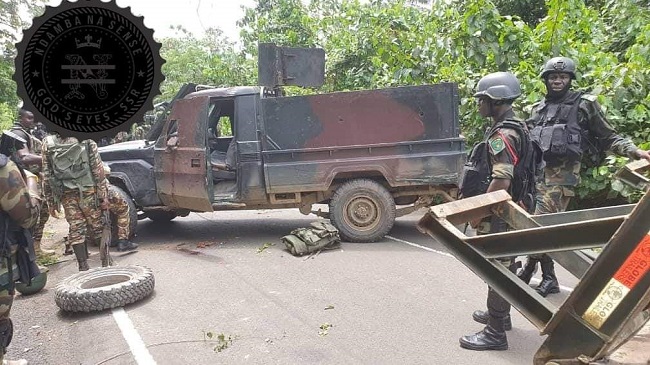
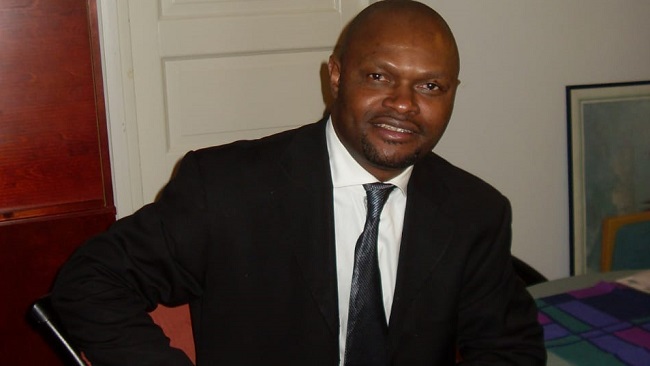
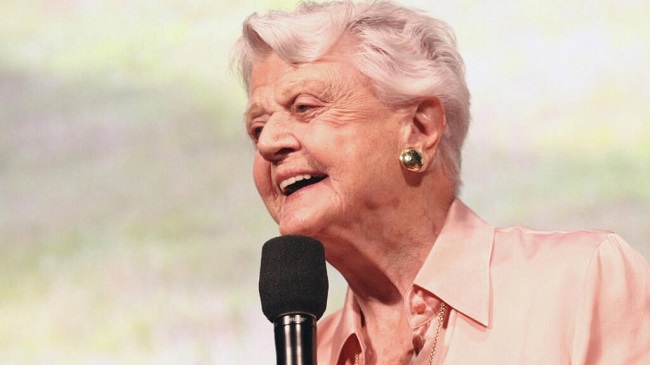
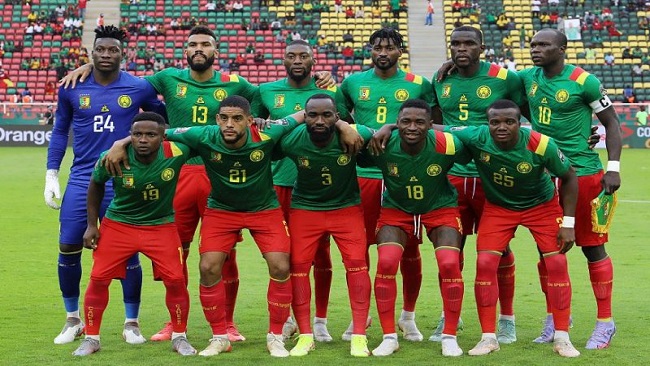
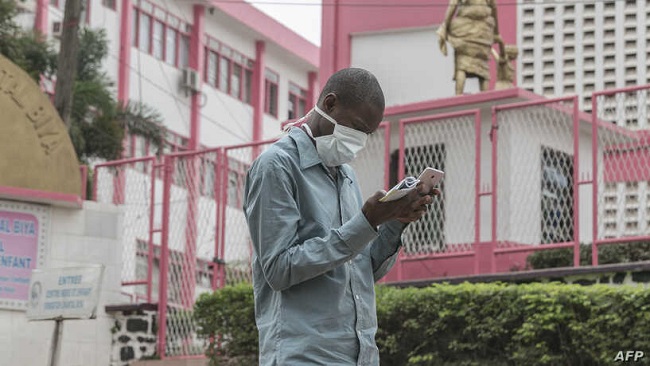

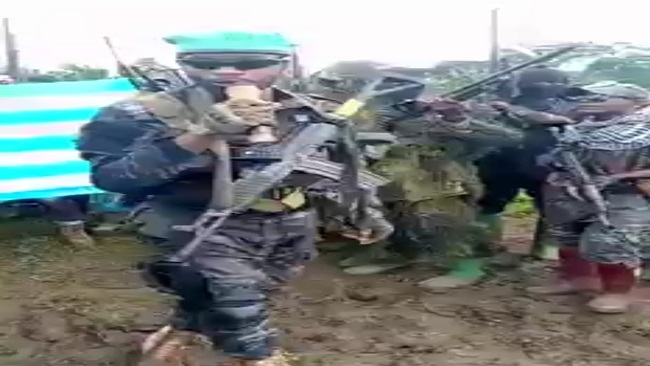




















13, October 2022
Archbishop Andrew Nkea takes Boston by storm 0
The Most Rev. Andrew F. Nkea, Metropolitan Archbishop of Bamenda and President of the National Episcopal Conference of Cameroon visited the Roman Catholic Archdiocese of Boston in the US.
The man in the clerical collar was in Boston as part of a partnership formed to foster collaboration between the Archdiocese of Bamenda and the Church in Cameroon with the Archdiocese of Boston and the Church in the United States of America.
Archbishop Nkea had traveled back and forth before, but this recent visit was a chance to share the Roman Catholic faith and build relationships.
Revered Father Maurice Agbaw-Ebai who initiated the visit told Cameroon Concord News that what caused the Cameroonian Archbishop to come to Boston is love and that love is what propels partnership.
His Grace Archbishop Andrew Nkea spent the week touring the archdiocese and meeting with the Rector of St. John’s Seminary, Boston MA, the President of Boston College and above all with His Eminence Cardinal O’Malley, Metropolitan Archbishop of Boston.
Archbishop Nkea also met the Most Rev. Robert P. Reed, Auxiliary Bishop of the Archdiocese of Boston, the Dean of Woods College of Advancing Studies, Boston College, Chestnut Hill, Solemn Vespers at St. John’s Seminary and Faculty/Seminarians of Pope St. John XXIII National Seminary, the President, Merrimack College, North Andover, MA and with Representatives of the Pontifical Missionary Societies, Roman Catholic Archdiocese of Boston.
By Soter Agbaw-Ebai with files